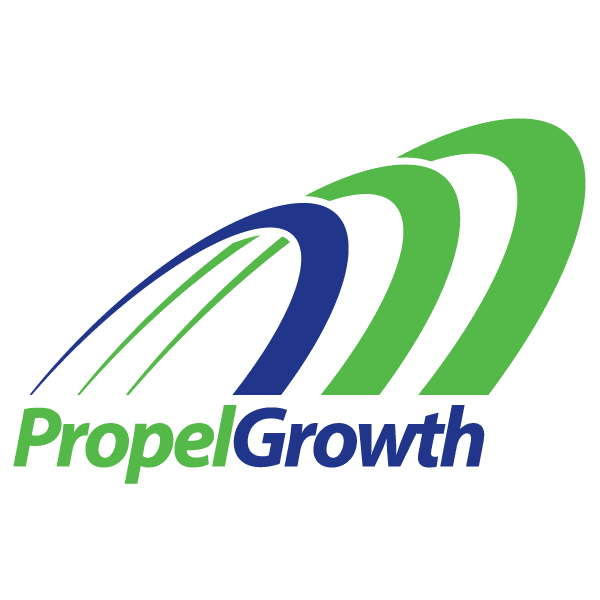![]()
Many of our clients offering specialized trading technology spend excessive time worrying about their competition. Are you in this camp? Does your team spend more time doing competitor analysis and examining what competitors are doing than figuring out what customers need? Are you trying to match competitor tactics? Do you let them set the bar for your product and messaging?
Focus on Your Buyers
Imagine what would happen if your team focused that attention on the needs of your customers and your target market? You have a unique offering, a unique team and a unique point of view. You’re specialists at a specific thing. It’s important to spend time making sure your content clearly communicates to your target customers the reasons why choosing your firm is the best decision.
Research your ideal customers. What do they need? What problems can your firm help them solve? Winning sales is almost never about having the best product or the most features. Deals are won by the provider who gains the most trust in the buyer organization.
Marketing can help in this effort. Focus on finding out what makes an ideal customer. What problems do they have that your offering helps address? What capabilities do they need? What questions do they need answered? The more you focus your content on educating the prospective customer, the more confidence you’ll build. They want to know that your organization will help them achieve their goals. In almost every case, enterprise technology deals go not to the best product, but to the company that won the most trust.
Differentiating When You Don’t Have the Best
Many firms consider features when doing a competitive analysis, and worry that they don’t have the best product. But features are not usually what makes or breaks a deal, and technology providers can leverage many other key differentiators. For example, firms that don’t have the most feature-rich product on the market often fit best in a specific niche. Small firms are often able to offer clients personal attention from very specialized experts. Single product companies are often niche-focused and can offer specialized expertise. Some firms are in the early stages of product lifecycle, and might have a development team that is particularly good at listening to customers and evolving the product in alignment with customer needs. Larger firms with lots of products have the ability to offer a one stop shop, global access and broader expertise. Not one of these differentiators require you to offer the best product on the market. Yet all are important.
Differentiating by Being Customer-Centric
One of the best ways to differentiate and win customer trust is to develop highly customer-centric marketing that answers customers questions at every stage in their buying process. To do this, get together with Sales and write down EVERY question a customer or prospect asks during the sales process. Figure out the buying stage and buyer persona related to each question, and start writing the answers. Publish the answers in your blog, and use them in automated lead nurturing programs. You can’t get better subject matter for your blog than answering customer questions.
How to Find Questions to Answer
If you’re having trouble coming up with the list of questions, here are some sources:
- Call your clients. Ask them what questions they had when going through the decision process.
- Ask key client supporters of recently closed deals what questions they got from others in their organization as they went through their buying process.
- Ask Sales to blind carbon copy or forward emails to Marketing every time they email an answer to a prospect.
- Ask Customer Service to send you the questions they’re receiving along with the answers.
- Attend sales meetings and write down the questions asked and the answers coming from the team.
- Ask the Sales, Account Managers and Sales Engineers what questions they hear.
- Blog the questions and answers.
The more you focus on your customers’ questions and needs, the more they’ll trust that you’re the right choice.
Still Worried About the Competition?
Compare yourself to me for a minute. PropelGrowth competes against HUNDREDS of content marketing firms. PR agencies are starting to offer competing services. Publishers of the trade magazines compete with us. The analysts are competing. Branding agencies are developing content departments. Most of these firms are trying to target the financial services industry, and some, like the trade press and the analysts, know more about the markets and have stronger brand recognition than we do. If I pay attention to our competition, I’ll get scared and shut down the business. But as long as we focus on creating programs and content that help our clients and prospects, business keeps coming in.
By the way, our competitors LOVE our content…but I’m not going to worry about that. I’m just going to keep publishing material I believe will be helpful to you.
If you only have a few direct competitors. You’re LUCKY! now stop worrying about the competition and start helping prospective customers.
To read the second half of this blog post, click here.
- 4 Steps to Optimize Your LinkedIn Profile for Sales Prospecting – February 12, 2021
- The Reality of Cold Calling for B2B Sales – January 11, 2021
- Can Inbound Marketing Generate Enough Leads? – January 9, 2021








One response to “Are You Focused On Competitor Analysis or Customers?”
[…] week, I asked you if you’ve been spending more time on competitive analysis than on customer analysis. Today I want to dig a bit deeper into the competitor theme and examine whether having a lot of […]